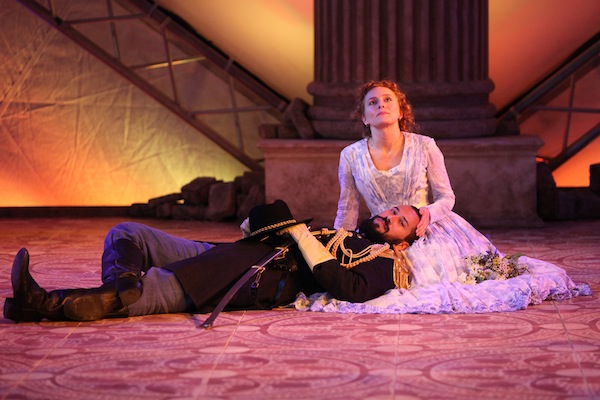The tyrannical regime in Syria has collapsed, and Syrian leader Bashar al-Assad has fled to Russia. We can hope this represents the end of the catastrophic Syrian civil war that has cost perhaps 600,000 lives, maybe more, and displaced half the country’s population.
The only thing that seems certain, however, is that the Assad regime is over. What comes next is largely unknown.
The forces that undid Assad, whose family has ruled the country with an iron fist for five decades, are a mix of ideological and theological entities, including Hayat Tahrir al-Sham, a group that sprang from the Islamic State and has links to al-Qaeda, as well as Western-aligned Kurdish nationalists, deserters from the regime’s military, and forces aligned with a vast array of foreign actors, including Russia, Turkey, Saudi Arabia, the Gulf States and the United States. These are not likely to coalesce into a comfortable new government.
Regardless of what happens next, Israeli and American leaders were happy to take some credit for Assad’s fall.
Binyamin Netanyahu, Israel’s prime minister, said the outcome “is the direct result of our forceful action against Hezbollah and Iran, Assad’s main supporters.”
“For years,” said US President Joe Biden, “the main backers of Assad have been Iran, Hezbollah, and Russia. But, over the last week, their support collapsed – from all three of them – because all three of them are far weaker today than they were when I took office.”
Israel has created a buffer zone in the Golan Heights to protect its territory in the event of continued unrest.
Meanwhile, there were US airstrikes on Sunday against the Islamic State, which operates in parts of Syria, an act intended to hamper that extremist group’s ability to fill the vacuum left by Assad’s toppling. But the United States is now just weeks away from the transition to a new president – a president who was elected partly on the promise to avoid foreign military entanglements.
At the same time, Donald Trump’s approach on issues has tended to be unpredictable. In characteristic all caps, Trump posted about Syria on the weekend, “This is not our fight.” Just days earlier, he promised “all hell to pay” if the Israeli hostages held by Hamas are not released by the time he becomes president. Whether the new Trump regime is isolationist or belligerent may depend on the mood the president wakes up in or what cable news channel he last binged.
One thing that seems certain and hopeful is that the collapse of Assad is part of a broader series of setbacks to the Iranian-based web of international terror. Israel has massively undermined Hezbollah, killing many of its top leaders and destroying much of its capabilities. The war against Hamas in Gaza, protracted, horrific and with no apparent end in sight, is nonetheless on the trajectory it set out on, more than a year ago, to eliminate Hamas as a force.
Assad’s collapse, while leaving a vacuum, is unequivocally the end of something terrible. Whether it is the beginning of something better is a question.
In one of the most encouraging signs, some commentators are suggesting that the multi-front failure despite billions of dollars in Iranian funds funneled to its proxies could even endanger the fundamentalist regime in Iran itself.
This is no time to celebrate. It is always, however, worth seeking out reasons for hope. That is especially true for Jews in the season of Hanukkah.
The collapse of the Syrian regime, the immense weakening of Hezbollah and Hamas and, to some extent Iran, are glimmers of light in a place and time of much darkness. It would be profoundly naïve, however, to assume that what comes next for Syria (and, as a result, for the region) will be either quick or entirely positive.
For the sake of the Syrian people, we hope for something resembling stability, as well as human rights and social and economic reconstruction. For the larger region, we hope for stability and that multi-front conflicts resolve in ways that advance mutual well-being.
For the sake of Israelis, who have known far too much war and violence, and whose borders and neighbourhood have been notoriously dangerous for 76 years, may the latest developments prove, when history is written, a step toward lasting peace.


